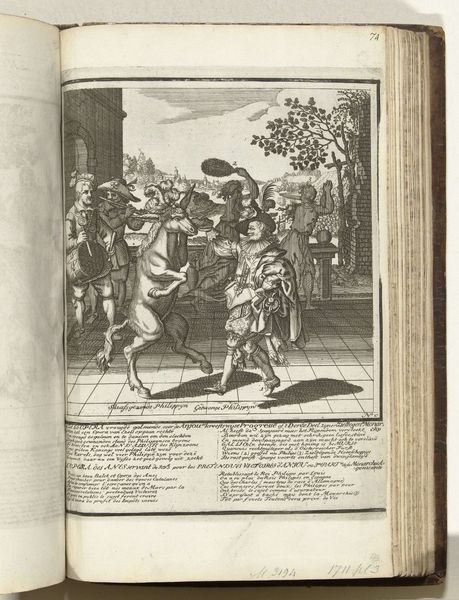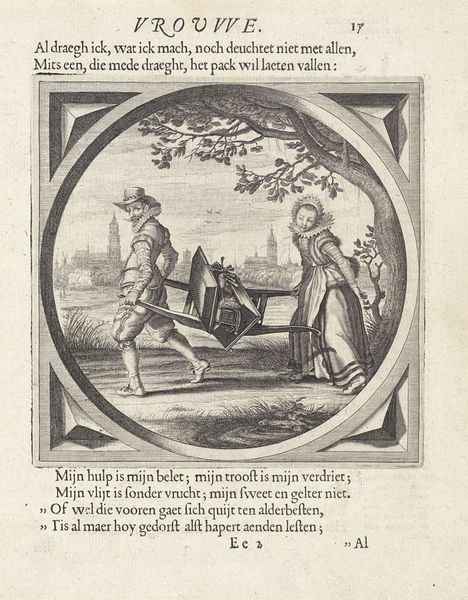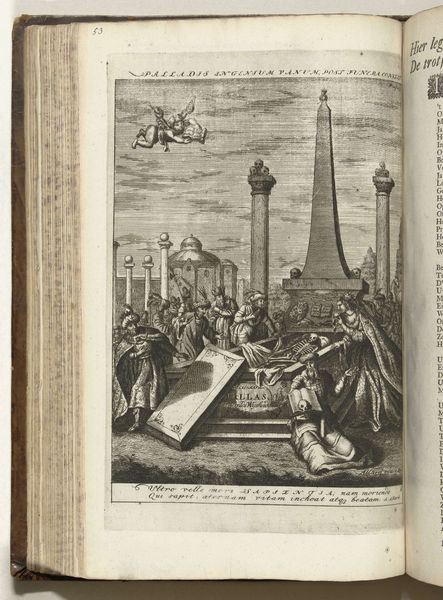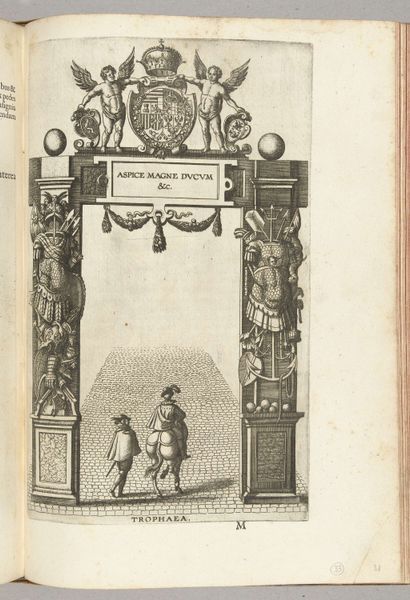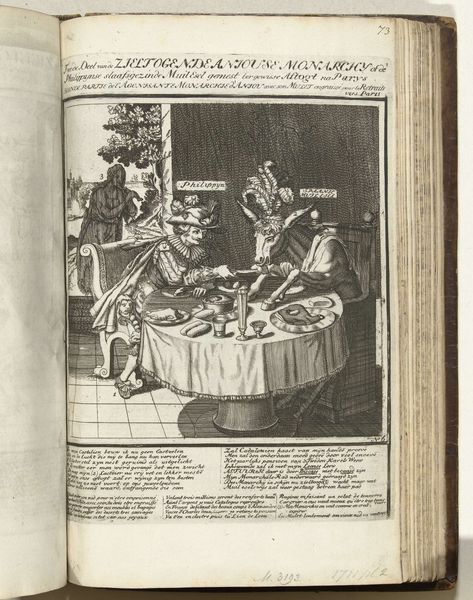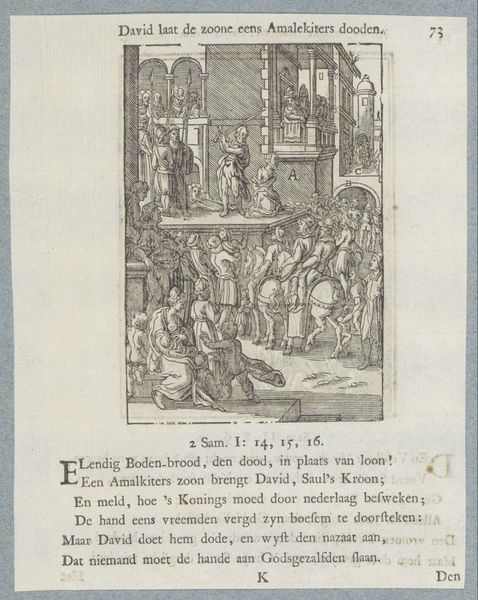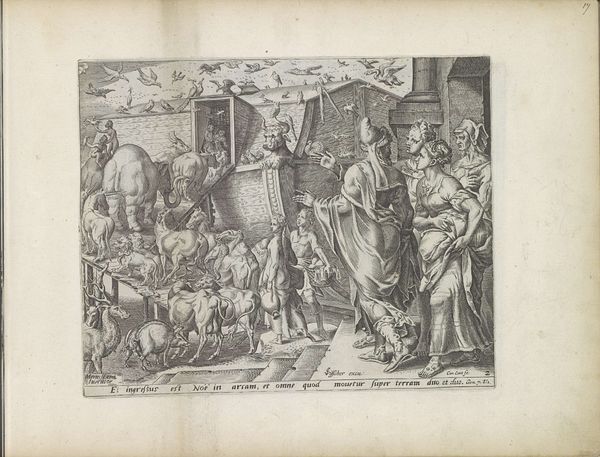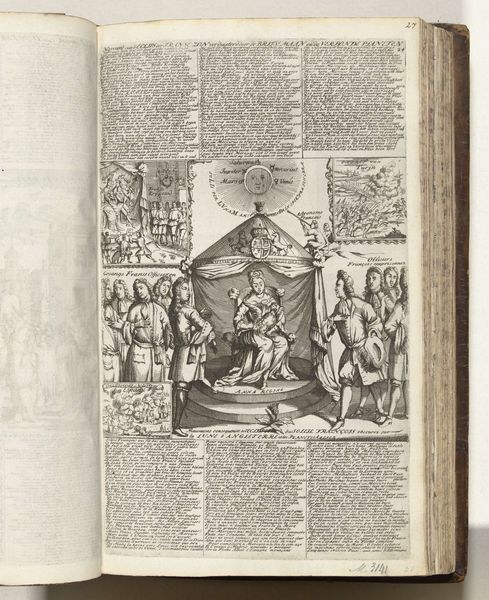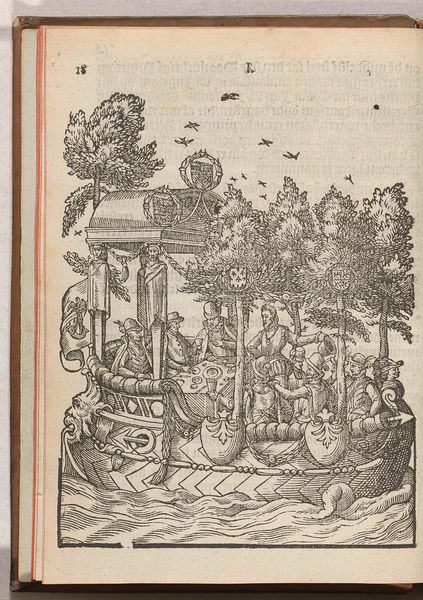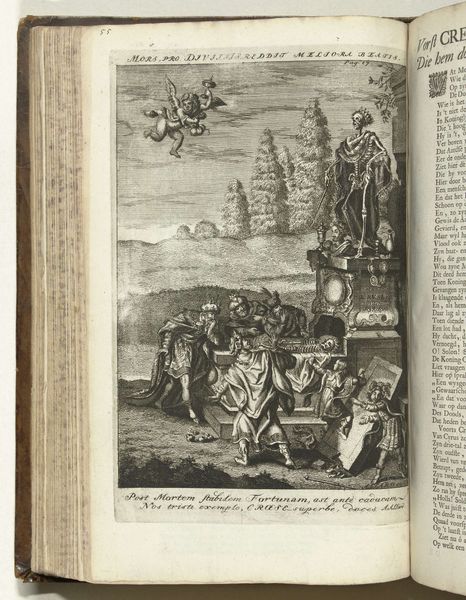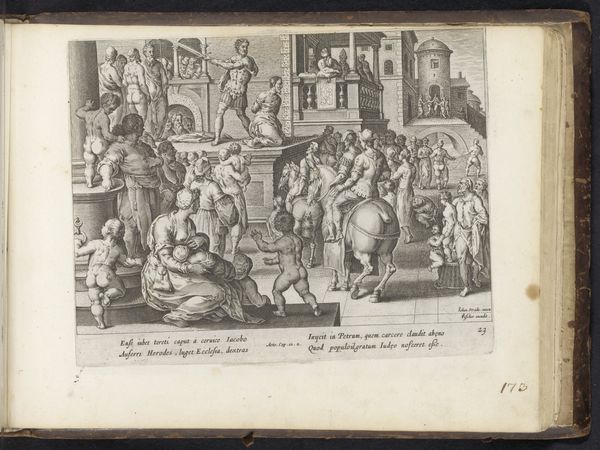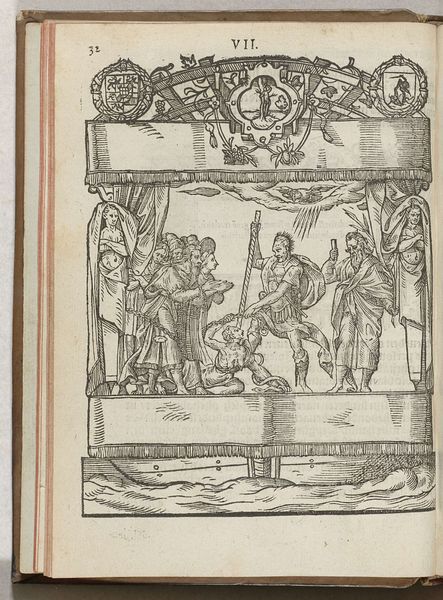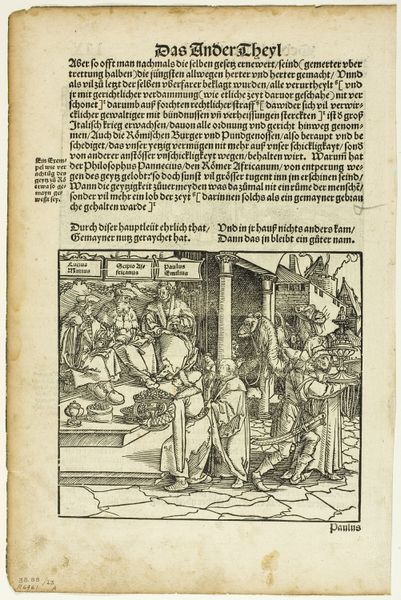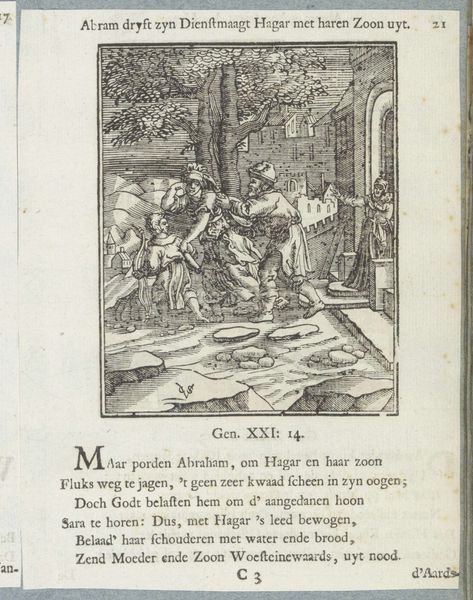
print, engraving
#
narrative-art
#
baroque
# print
#
history-painting
#
engraving
Dimensions: height 315 mm, width 200 mm
Copyright: Rijks Museum: Open Domain
Abraham Allard created this print, titled "De zieltogende Anjouse Monarchie," in 1711 using engraving techniques. This work, now held in the Rijksmuseum, serves as a visual commentary on the political landscape of early 18th-century Europe. Allard’s print encapsulates the power struggles of the time, specifically focusing on the decline of the Spanish monarchy under French influence. The imagery, rich with symbolism, portrays the Spanish monarchy as a dying entity, milked dry by foreign interests. The setting, depicted as a theatrical stage, suggests a critique of political maneuvering and the performative aspects of power. Made during the War of the Spanish Succession, the print reflects the Dutch Republic's stance against French expansionism. Allard's choice of visual language taps into contemporary anxieties about national sovereignty. To fully understand this work, one might delve into the printmaking traditions of the Dutch Golden Age, along with pamphlets and political writings that shaped public opinion. This print reminds us that art is a product of its time, deeply embedded in social and political contexts.
Comments
No comments
Be the first to comment and join the conversation on the ultimate creative platform.
